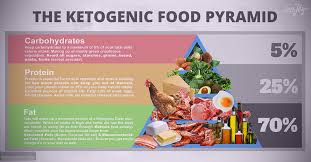
Breaking News
 BlackRock CEO Larry Fink Makes Spine Chilling Admission
BlackRock CEO Larry Fink Makes Spine Chilling Admission
 "This Is A Perfect Storm": Martin Armstrong Warns 'War Is Coming'
"This Is A Perfect Storm": Martin Armstrong Warns 'War Is Coming'
 Iran Protesters Try To Break Into Govt Building In 4th Consecutive Night Of Unrest
Iran Protesters Try To Break Into Govt Building In 4th Consecutive Night Of Unrest
 Investors Scoop Up 40% Of Vacant Lots Sold After Los Angeles Fires: Report
Investors Scoop Up 40% Of Vacant Lots Sold After Los Angeles Fires: Report
Top Tech News
 Laser weapons go mobile on US Army small vehicles
Laser weapons go mobile on US Army small vehicles
 EngineAI T800: Born to Disrupt! #EngineAI #robotics #newtechnology #newproduct
EngineAI T800: Born to Disrupt! #EngineAI #robotics #newtechnology #newproduct
 This Silicon Anode Breakthrough Could Mark A Turning Point For EV Batteries [Update]
This Silicon Anode Breakthrough Could Mark A Turning Point For EV Batteries [Update]
 Travel gadget promises to dry and iron your clothes – totally hands-free
Travel gadget promises to dry and iron your clothes – totally hands-free
 Perfect Aircrete, Kitchen Ingredients.
Perfect Aircrete, Kitchen Ingredients.
 Futuristic pixel-raising display lets you feel what's onscreen
Futuristic pixel-raising display lets you feel what's onscreen
 Cutting-Edge Facility Generates Pure Water and Hydrogen Fuel from Seawater for Mere Pennies
Cutting-Edge Facility Generates Pure Water and Hydrogen Fuel from Seawater for Mere Pennies
 This tiny dev board is packed with features for ambitious makers
This tiny dev board is packed with features for ambitious makers
 Scientists Discover Gel to Regrow Tooth Enamel
Scientists Discover Gel to Regrow Tooth Enamel
 Vitamin C and Dandelion Root Killing Cancer Cells -- as Former CDC Director Calls for COVID-19...
Vitamin C and Dandelion Root Killing Cancer Cells -- as Former CDC Director Calls for COVID-19...
Can eating mostly fat help you lose weight?

Every January, fat's in the crosshairs of health columnists, fitness magazines, and desperate Americans. This year, PopSci looks at the macronutrient beyond its most negative associations. What's fat good for? How do we get it to go where we want it to? Where does it wander when it's lost? This, my friends, is Fat Month.

Related question: Is butter a carb?
Pixabay
The ketogenic diet didn't start as a weight-loss method. It was a treatment for epileptic kids—one of the few that worked, especially for those who had already tried traditional medications. But odds are the only people you'll hear talking about it today are those looking to drop a few pounds without giving up butter.
Keto, as it's known among dieters, is based around getting most of your calories from fat, some from protein, and almost none from carbohydrates. It's like a more extreme form of Atkins, except keto actually came first. It became an epilepsy treatment back in the 1920s, whereas the weight-loss paper that inspired Dr. Atkins to establish his low-carb diet wasn't published until 1958.
The idea of eating fat in order to lose fat is obviously appealing. Oils and fats are filling and soothing, so prospective dieters feel they might not have to sacrifice as much. And everyone knows that carbs are the devil anyway, right? If it started as a medically-prescribed diet, surely it must be healthy.
But like your opinion on most fad diets, your thoughts on keto are probably based on vague notions sourced from the nightly news. Food trends tend to skyrocket to fame and fall from grace before science ever has a chance to weigh in. But you should want to see solid research before you commit to a whole new way of eating. In honor of PopSci's Fat Month, let's do a quick refresher on what keto really is—and whether it works.
What is the keto diet again?
The real ketogenic diet requires you to get 80-90 percent of your calories from fat. You should also consume about one gram of protein per kilogram of bodyweight and limit carbs to 10-15 grams a day. That's a huge shift from the average American diet, in which about half of all calories come from carbs.



